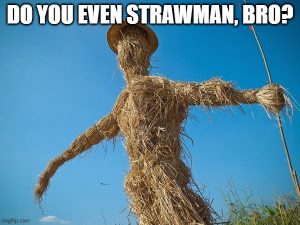Section 230 Doesn’t Preempt Utah’s Minor Protection in Social Media Act–NetChoice v. Reyes
 Utah passed a terrible law claiming to be “for the kids,” which are increasingly prevalent at the state level. The court summarizes some of the law’s obligations:
Utah passed a terrible law claiming to be “for the kids,” which are increasingly prevalent at the state level. The court summarizes some of the law’s obligations:
the Act requires covered websites to “implement an age assurance system,” “limit the Utah minor account holder’s ability to share content to only connected accounts,” and imposes data collection and use restrictions on covered entities. Relevant here, the Act also prohibits covered websites from disseminating content on minors’ accounts in particular ways by requiring social media companies to “disable” three “features:”
* autoplay functions that continuously play content without user interaction;
* scroll or pagination that loads additional content as long as the user continues scrolling; and
* push notifications prompting repeated user engagement.
NetChoice challenged the law in court primarily based on the First Amendment, but NetChoice also claimed that Section 230 preempts the latter three functions. The court addresses the Section 230 claim out of order and dismisses it. This ruling has no bearing on the constitutional challenge (though it may show that the judge is struggling with the content/conduct distinction).
Section 230
 The court summarizes its position:
The court summarizes its position:
The dispositive question is whether the Act’s prohibitions on autoplay, seamless pagination, and notifications treat NetChoice members as the publisher or speaker of the third-party content they disseminate. The court concludes they do not. The Act’s prohibitions focus solely on the conduct of the covered website—the website’s use of certain design features on minors’ accounts—and impose liability irrespective of the content those design features may be used to disseminate. In other words, the prohibitions do not impose liability on NetChoice members based on their role as a publisher of third-party content because the potential liability has no connection to that content.
I flag the magic word “conduct” (“The Act’s prohibitions focus solely on the conduct of the covered website”). The “conduct” the court speaks of is editorial decision-making about how best to present third-party content, which is exactly how I would define “publishing”–a phrase expressly covered by Section 230. The court says that the claims have “no connection” to the content, but obviously if there’s no third-party content to publish, then there’s no legal violation at all. In other words, third-party content is a but-for requirement for a legal violation. From my perspective, that’s a close enough “connection.”
NetChoice made these arguments, and the court responds poorly:
The law’s provisions demonstrate immunity for a website’s “exercise of its editorial and self-regulatory functions” “cannot be understood as a general prohibition of civil liability” for all of a website’s conduct. Tellingly, the immunity provisions are located in a section captioned “Protection for ‘Good Samaritan’ blocking and screening of offensive material.” And, as other Courts of Appeals have persuasively held, the scope and substance of the immunity provided by Section 230(c) “can and should be interpreted consistent with its caption.”
 Again with the word “conduct.” No one argues that Section 230 applies to conduct. The court is swatting down a strawman argument. (Later, the court uses another tired strawman–the “lawless no-mans-land” idiom that I debunked last year. Ugh.) The decision to interpret the statute in line with its caption reflects ignorance of Section 230’s drafting history and is a decidedly minority perspective in Section 230 jurisprudence.
Again with the word “conduct.” No one argues that Section 230 applies to conduct. The court is swatting down a strawman argument. (Later, the court uses another tired strawman–the “lawless no-mans-land” idiom that I debunked last year. Ugh.) The decision to interpret the statute in line with its caption reflects ignorance of Section 230’s drafting history and is a decidedly minority perspective in Section 230 jurisprudence.
The court distinguishes the Dyroff, Force, and Fields cases because “each case involves a critical component that NetChoice’s claim lacks: an effort to hold a website liable for content produced by third-party users….Whether NetChoice members incur liability for the use of autoplay, seamless pagination, or notifications on minors’ accounts is entirely divorced from the content they may disseminate with those features.”
In a footnote, the court also asks if Section 230 can even support declaratory relief. Ugh.
Implications
Section 230 plays an important role in curbing excessive state laws, but only when it applies to third-party content. The structural goal of Utah’s law is to suppress the publication of third-party content, but it never expressly says so. As a result, Section 230 isn’t the natural fit. The First Amendment, however, covers these topics squarely, especially after the Moody case. The Utah law seeks to regulate publication decisions, and that should trigger strict scrutiny. Any self-satisfaction the Utah defendants got from “winning” this Section 230 ruling should be short-lived.
Case Citation: NetChoice LLC v. Reyes, 2024 WL 3510919 (D. Utah July 22, 2024)
UPDATE: Utah’s law also dodged a Dormant Commerce Clause challenge by various content publishers and Internet users for lack of standing. The court says ” Plaintiffs here are not directly regulated by the Act. They face no liability or threat of enforcement under the Act. And, as alleged, they are not engaged in any commercial or economic activity that would be burdened by the Act.” Zoulek v. Hass, 2024 U.S. Dist. LEXIS 138675 (D. Utah August 5, 2024)
